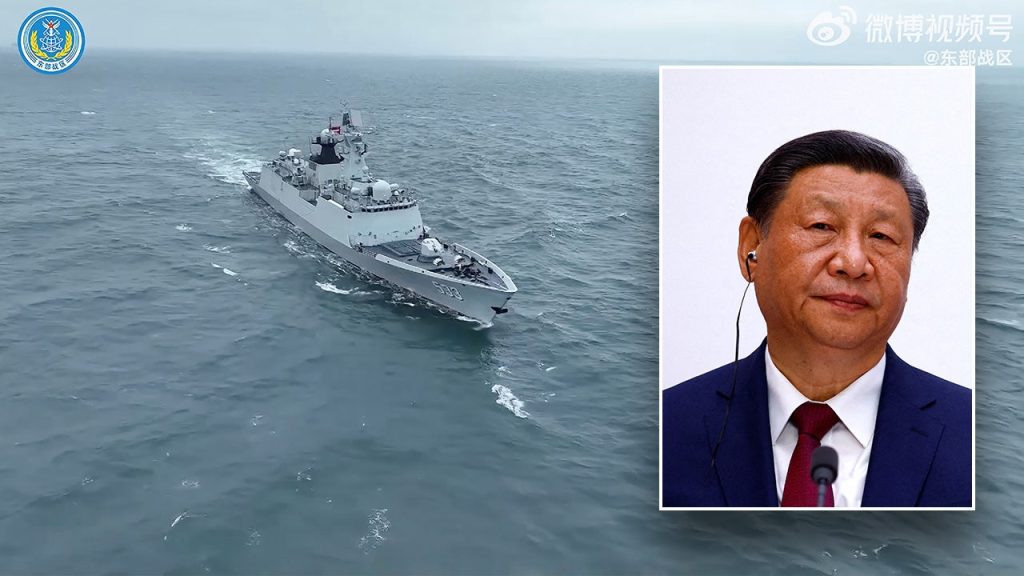China recently conducted a 13-hour simulated blockade of Taiwan using a vast array of military resources, sparking concerns about the intentions behind the exercise. While many believed China targeted Taiwan in response to President William Lai’s comments since taking office in May, experts suggest that the exercises were planned in advance to wear down Taiwan’s military capabilities and threaten its security. The ultimate goal is to undermine Taiwanese confidence in their government and potentially change the status quo of Taiwan’s relationship with China.
Analysts have pointed out that the military maneuvers may not be solely aimed at Taiwan but could also be a strategic move to target the United States. By engaging in exercises near Taiwan, China may be signaling its readiness to challenge any U.S. intervention in the region. By practicing ways to ambush the U.S. Navy and potentially deter any actions in the Taiwan Strait, China is sending a message to Washington that intervening in the region comes with risks and potential consequences. The timing of the exercises also coincided with other geopolitical tensions in the region, prompting speculation about China’s broader strategic goals.
Despite the show of military force by China, Taiwan has remained relatively calm during the encirclement, with the public showing little fear or concern. However, this nonchalant attitude has raised alarms among some experts, who view it as a sign that Taiwan may be accepting its vulnerability to China’s military threats. The increasing proximity of China’s incursions, such as pushing within 24 nautical miles of Taiwan, highlights the growing assertiveness of Chinese military activities in the region. Furthermore, China’s use of its Coast Guard in military exercises adds another layer of complexity to the situation and raises questions about Beijing’s intentions.
The United States’ response to China’s military drills has been met with criticism, with some questioning the perceived tepid and confusing reaction. While many Taiwanese expect U.S. assistance in the event of a Chinese attack, Washington’s statements have been seen as measured rather than fully supportive. The State Department’s characterization of China’s actions as “irresponsible, disproportionate, and destabilizing” further underscores the complexities of the situation and the need for a coordinated response from the international community. Taiwan is calling for solidarity among democracies to counter China’s aggressive tactics and protect its hard-won democracy.
As tensions continue to escalate in the Taiwan Strait, there is a growing urgency for Taiwan to update its National Security Strategy to adapt to the evolving security landscape. A clear and comprehensive strategy is seen as essential to guiding Taiwan’s responses to external threats and maintaining peace and stability in the region. The broader implications of China’s military exercises go beyond Taiwan, with implications for U.S. strategic interests and regional stability. The international community, led by the United States, is being called upon to respond decisively to China’s provocations and safeguard democratic values in the face of growing authoritarian assertiveness.


